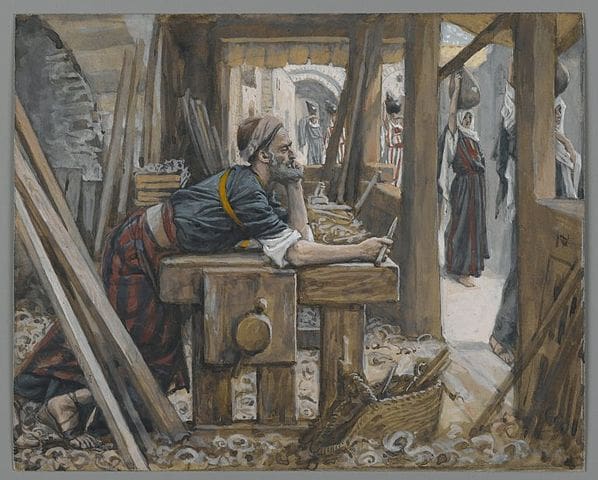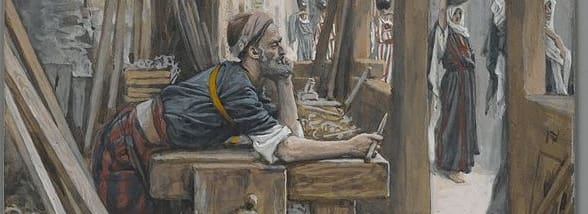Dear Fr. John, I am deeply distressed by the outcome of our election. I am beyond myself when I  consider that more than 40% of Mass-going Catholics committed mortal sin (or something close depending on their knowledge) by voting for someone who will continue to support Planned Parenthood and abortion. I know it has only been a matter of days but I just can’t shake my anxiety over all of this. I am losing sleep and having trouble praying. What can I do to stop all this noise in my head and deal with all of this? I am really sick of politics!!!!
consider that more than 40% of Mass-going Catholics committed mortal sin (or something close depending on their knowledge) by voting for someone who will continue to support Planned Parenthood and abortion. I know it has only been a matter of days but I just can’t shake my anxiety over all of this. I am losing sleep and having trouble praying. What can I do to stop all this noise in my head and deal with all of this? I am really sick of politics!!!!
Now that the election is long gone, we all may be able to reflect on it more calmly. And it is worth reflecting on. At first glance, this question may seem out of place in the context of our usual fare about spiritual direction and spiritual progress. But there is a connection. Our spiritual lives impact every sector of our lives, and so every sector of our lives will also have an impact on our spiritual lives. As the Catechism puts it (although not in the context of politics): “…we pray as we live, because we live as we pray” (CCC 2752). The ups and downs of life are intricately interwoven with the spiritual journey. In that light, allow me to share some thoughts on the points you brought up.
The Judgment Trap
In the first place, although it seems that the Catholic vote was distressingly inconsistent with what the Church teaches in general and what the bishops taught specifically coming up to the election, we can’t say whether or not those Catholics who supported pro-abortion candidates committed mortal sin. We can’t read their souls, and so we can’t see if all three requirements for mortal sin were present: full knowledge, full consent, and grave matter. All we can know for sure is that one requirement – grave matter – was present. This is an important point. Jesus taught clearly the evil of sin, but he also taught clearly the danger of judging other people. We can always condemn the sin, but we must always love the sinner. This applies to politics as well as to family life, office life, school life, parish life, and every other arena of human relationships. One of our Lord’s hardest sayings is “Stop judging, that you may not be judged” (Matthew 7:1). We are quick to make excuses for ourselves (as when we honk at another driver in the midst of traffic), and we are slow to make excuses for others (as when they honk at us). Growing in Christ-like love requires intentionally thinking well of others, even when they do evil, leaving the final judgment up to God. This is counter-cultural. This takes virtue, and God’s grace. The image that always helps me is St. Catherine of Siena holding and comforting a condemned murderer (who refused to confess to a priest) until the moment of his execution, and then holding his severed head in her arms.
Reflecting on Reactions
In the second place, I am certain that your intense anxiety about this has diminished by now. But it’s worth reflecting on the roots of that anxiety. Any time something steals our sleep and obstructs our prayer, it should be a yellow flag – especially the obstruction of our prayer. Usually, that’s a sign that there is some attachment in our hearts that has not yet been fully bathed in God’s grace and put in its proper place. I can’t tell what that would be, for you, but I would encourage you to reflect on it, to pray about it, and, if you have a spiritual director, to talk about it. Don’t panic about it, but don’t lose the opportunity that this intense emotional experience gives you to learn about your own heart.
To cite the Catechism once again, where it explains how the things that distract us from prayer can be linked to hidden, disordered attachments: “To set about hunting down distractions would be to fall into their trap, when all that is necessary is to turn back to our heart: for a distraction reveals to us what we are attached to, and this humble awareness before the Lord should awaken our preferential love for him and lead us resolutely to offer him our heart to be purified” (CCC 2729). Whenever we are oppressed by “all this noise in my head” we can know for certain that we need to go back to basics: Who am I in God’s eyes? Where am I going (heaven)? What is the meaning of my life (to live in communion with God)? What is the Lord asking of me right now?… Often, staying on task spiritually requires heroic virtue and painful effort – but those are often the moments when we can best show and grow our love.
Just Plain Sick of Politics!
Finally, I can understand fully why you wrote “I am really sick of politics!” By election day, I think we all were. But that should not keep any of us from staying engaged in the culture, in the communities in which we live, and in the political process. In the context of social life, one of the core Catholic virtues we are all called to cultivate is solidarity (cf. CCC 1939-1942). Solidarity is our steady and dependable commitment to the common good of the communities and the society of which we are members. Catholics are not individualists. We believe in the inalienable dignity of every individual human person, but we do not believe that individuals are responsible only for themselves. We are created in God’s own image, and God is a Trinity of persons. We too are, by nature, inserted into a community of persons, and we are each responsible for contributing to the good of others by building up that community, just as we each benefit from the goods and talents of others who also build up the community.
So, though we may feel sick of politics, the right reaction is not to bow out of the pressing needs of our society. Rather, we need to keep our sleeves rolled up and prayerfully consider how God is asking us (and he will ask different things of each of us) to carry on the work of evangelization in our world, which includes promoting and defending authentic social values and true, integral human development. Tired we may be, but that is no excuse for shirking our social duties as Catholics: “”Participation” is the voluntary and generous engagement of a person in social interchange. It is necessary that all participate, each according to his position and role, in promoting the common good. This obligation is inherent in the dignity of the human person” (CCC 1913 – the entire section is well worth reading).
In short, as faithful followers of the Eternal King and Savior of the World, Jesus Christ, we must never lose hope, and never give in to the temptation of defeatism and cynicism. We are called to “shine in the world like bright stars” (Philippines 2:15), no matter how dark the night may get.
Art: The Anxiety of Saint Joseph, 1886-1894, James Tissot, PD-US, Wikimedia Commons.


